Page 3
Advancing Digital Transformation
ASEAN-Japan cooperation is advancing in the vanguard of technological progress. That momentum is especially apparent in the realm of digital transformation. Here are two examples.

Page 3
ASEAN-Japan cooperation is advancing in the vanguard of technological progress. That momentum is especially apparent in the realm of digital transformation. Here are two examples.
Kyoto-based Ocean Eyes helps raise efficiency in fishery with digital tools that steer fishing vessels to where the fish are. The company, established in 2019, is a platform for commercializing technology developed at the Japan Agency for Marine-Earth Science and Technology. It has quickly developed a loyal following in Japanese fishery, and it is now preparing to share the technology with Indonesia’s fishing industry.
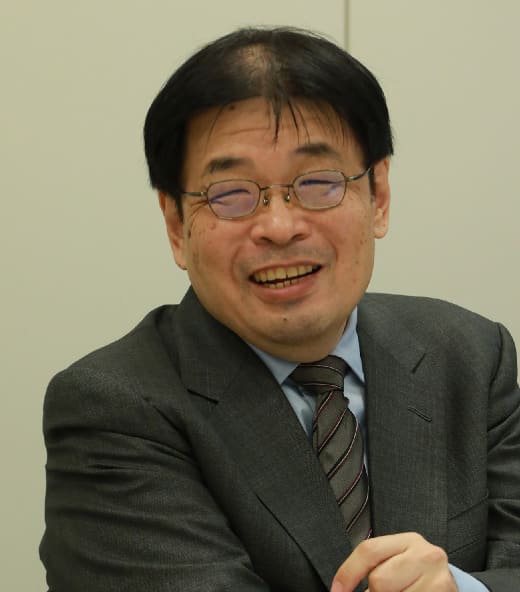
Kasahara Hidekazu
Cofounder and Director, Ocean Eyes
“Steering fishing vessels efficiently to clusters of fish reduces fuel consumption greatly,” reports Ocean Eyes cofounder and director Kasahara Hidekazu. “Fuel accounts for up to 30% of operating costs in long-distance fishing. So that’s an important contribution to fiscal viability in an industry where survival is a struggle for most players.”
Kasahara, who serves concurrently as a professor at Osaka Seikei University, adds that Ocean Eyes technology contributes to sustainability, as well as efficiency, in fishery. “Crews that fail to find clusters of high-quality fish tend to settle for catches of small, underdeveloped fish. That undermines the natural growth cycle and entails a lot of waste.
“Indonesia’s government,” lauds Kasahara, “demonstrates a strong commitment to sustainability in fishing. It abides by rigorous policy guidelines and enforcement in managed fishery. That includes monitoring the catch on a vessel-by-vessel basis.”
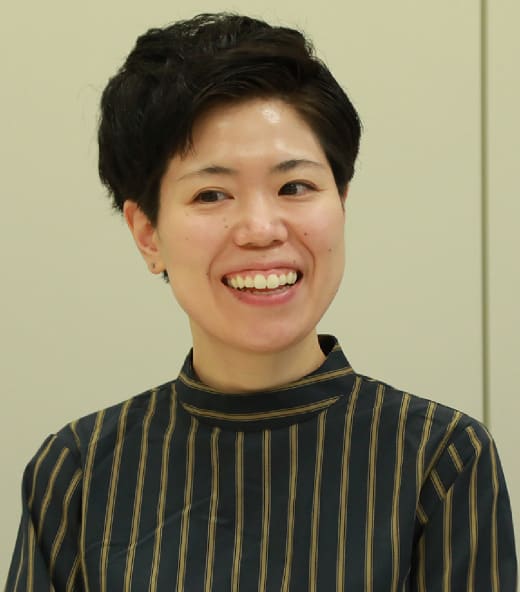
Kuraishi Megumi
Researcher, Ocean Eyes
Ocean Eyes’ support for fishery centers on two services. The company’s SEAoME service provides users with high-resolution predictions of sea conditions. Fishers Navi is an analytical service that determines the likely locations of fish clusters. Underlying both services is oceanic model simulation data obtained with supercomputer processing and sea surface temperature data obtained from weather satellites.
“Our SEAoME service is like a weather forecast for the sea,” adds Ocean Eyes researcher Kuraishi Megumi. “And the data is for mid-water and deep water, as well as for the surface. That’s valuable for fishing crews in seeking kinds of fish that prefer different depths.”
Ocean Eyes has partnered with the Indonesian company Kopernik in preparing to launch its services commercially in Indonesia. That partnership proved especially valuable when the Covid-19 pandemic struck. The pandemic precluded travel from Japan to Indonesia for about two years, and Kopernik handled all the interchange with local fishing companies during that span. Ocean Eyes has also benefited greatly from on-site support provided by the Japan External Trade Organization (JETRO).
Differences between Indonesia and Japan in commercial fishing operations have necessitated diverse adaptation in Ocean Eyes’ services. The biggest adaptation has consisted of localizing the language in the software interface.
A difference between Indonesia and Japan that has benefited Ocean Eyes is the average size of the players in fishing operations. Large companies that operate several large vessels account for most of the catch in Indonesia, whereas small operators—frequently single-vessel operators—dominate the fishing industry in Japan. That has allowed Ocean Eyes to focus its promotion on a handful of companies.
The initial findings in Indonesia have been extremely promising. “Our experience in the pilot project,” declares Kasahara, “suggests that we can expect our technology to increase yields about 20%.” The gratifying results in Indonesia have attracted interest from elsewhere in the ASEAN community. “We’re getting serious inquiries,” says Kasahara, “from the Philippines and from Thailand.”
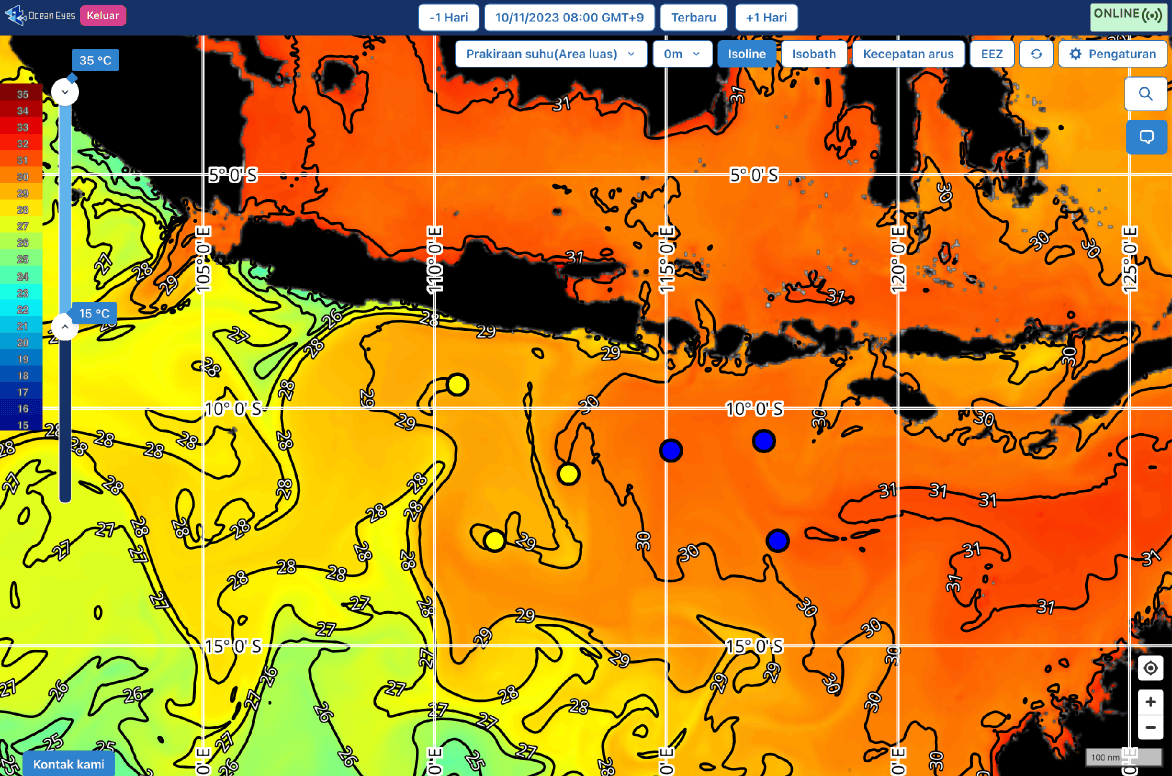
Screen shot from Indonesian version of Ocean Eyes’ Fishers Navi service
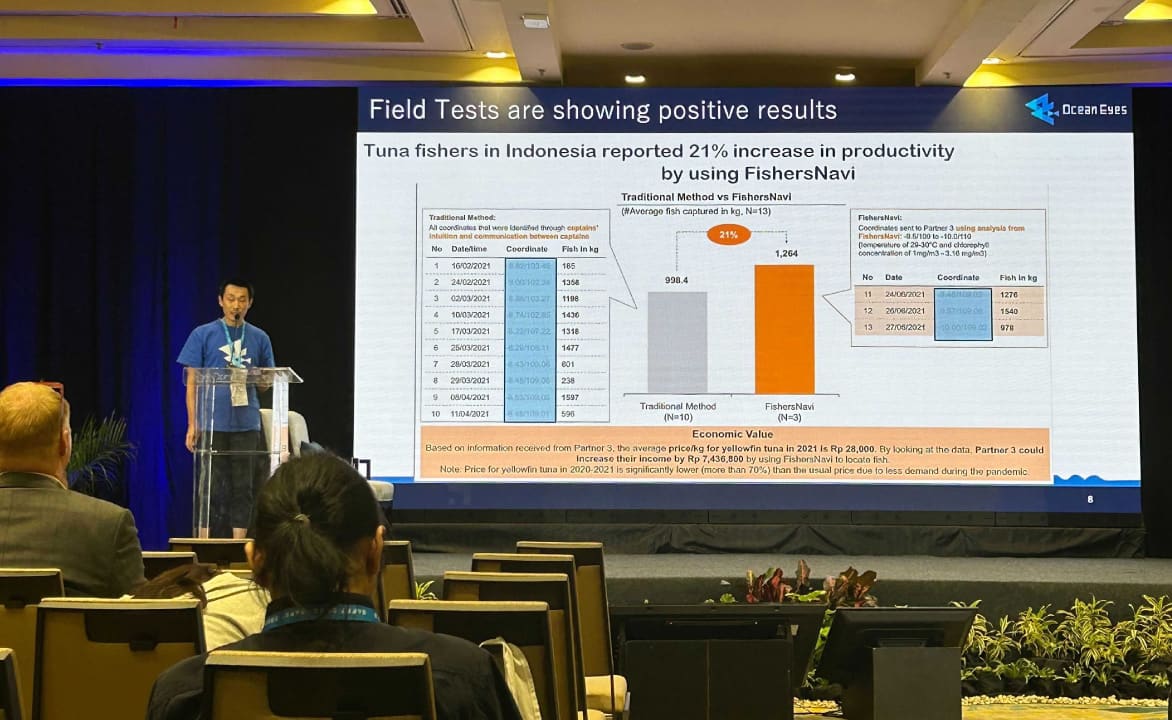
Presentation by Ocean Eyes cofounder and CEO Tanaka Yusuke to sustainable fishery conference in Indonesia
The Japanese venture start-up SmartDrive has begun providing services in Malaysia that contribute to achieving decarbonization targets in the mobility sector. Established in Tokyo in 2013, SmartDrive provides vehicle fleet operators with cloud-based data collection and analysis for optimizing vehicle maintenance, ensuring compliance with laws and regulations, and ensuring safe driving. It also uses its data collection and analysis capabilities to identify optimal sites for electric vehicle charging stations.
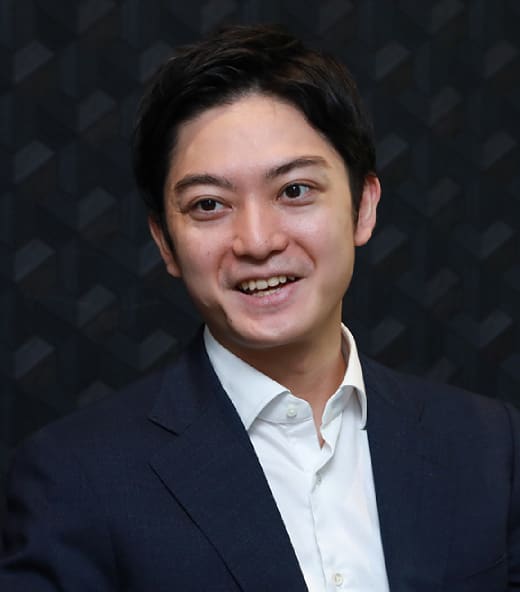
Kitagawa Retsu
Founder and CEO, SmartDrive
SmartDrive is staking out a position in a sector populated by far-larger competitors. Its founder-CEO Kitagawa Retsu argues that SmartDrive has a competitive advantage on account of its unaffiliation with any large corporate group.
“Large automakers and tire manufacturers, for example, marshal impressive technology in data recording and analysis that can support fleet management services. But each of them tends to support only customers that use their products. Our services at SmartDrive, in contrast, are available to any and all fleet operators.
“Another SmartDrive advantage is in human resources. Lots of Japan’s best young engineers prefer the free-wheeling environment of venture start-ups to the more-structured environment of large corporations. We have an edge over larger competitors in attracting top engineering talent.
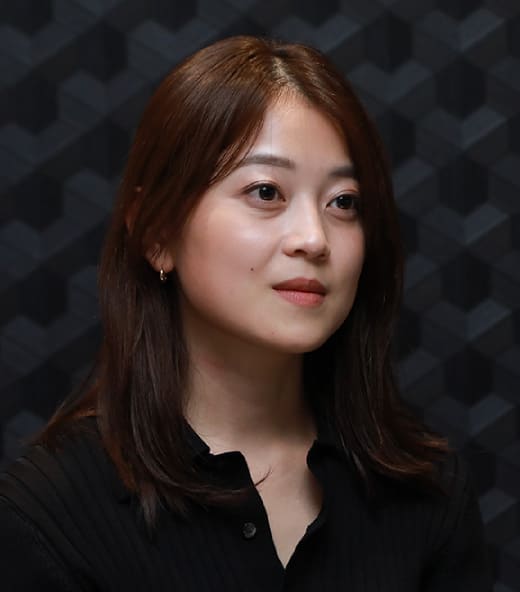
Tateyama Hikaru
Director of Marketing, SmartDrive
“Yet another advantage is our freedom from the inertia that tends to lock larger, better-established companies into well-worn practices. Our size and youth engender an alertness to new possibilities and a readiness to tackle those opportunities.”
“We make a compelling case for our service offerings to prospective customers,” asserts SmartDrive’s director of marketing Tateyama Hikaru. “The services, based on Global Positioning System data, generate important value-added, as well as helping to ensure legal compliance and safe operation. They reduce fuel and personnel costs, for example, and they outshine the competition in regard to user interface and user experience.”
SmartDrive established its first overseas presence, in Malaysia, when it was just seven years old. Kitagawa reveals that global business was part of his vision for the company from the very beginning. Malaysia, meanwhile, fit the bill as an ideal venue for debuting SmartDrive’s technology and service offerings outside Japan. The company joined hands with a local partner, the Selangor-based digital engineering firm DreamEDGE, to secure users for its service offerings. And it secured a grant from JETRO to develop a strategy for helping to optimize mobility in Malaysia.
“Selangor is something of a Silicon Valley–like hub of high-tech industry,” explains Kitagawa. “Our Malaysian partner, DreamEDGE, maintained its headquarters there, so we chose that city as the site of our pilot project when we set up our Malaysian subsidiary in 2020.”
SmartDrive has found a receptive market in Malaysia. Demand has proved robust for its software, such as a smartphone app for summoning a tow truck in the event of a traffic accident, and its hardware, such as charging stations for electric vehicles.
“Our work in identifying optimal sites for charging stations in Malaysia was initially,” explains Kitagawa, “for the main power utility and other corporate clients there. We have since begun building our own network of charging stations and now use our data-crunching capabilities to optimize siting in that network. Installing and maintaining a handful of stations has given us a good grasp of what we need to do, and we are on track to have a few dozen in place soon.”
Kitagawa has his eyes on business beyond Malaysia in Southeast Asia. Indonesia and Thailand, he suggests, would be the logical next steps in regard to market scale and roadway infrastructure.
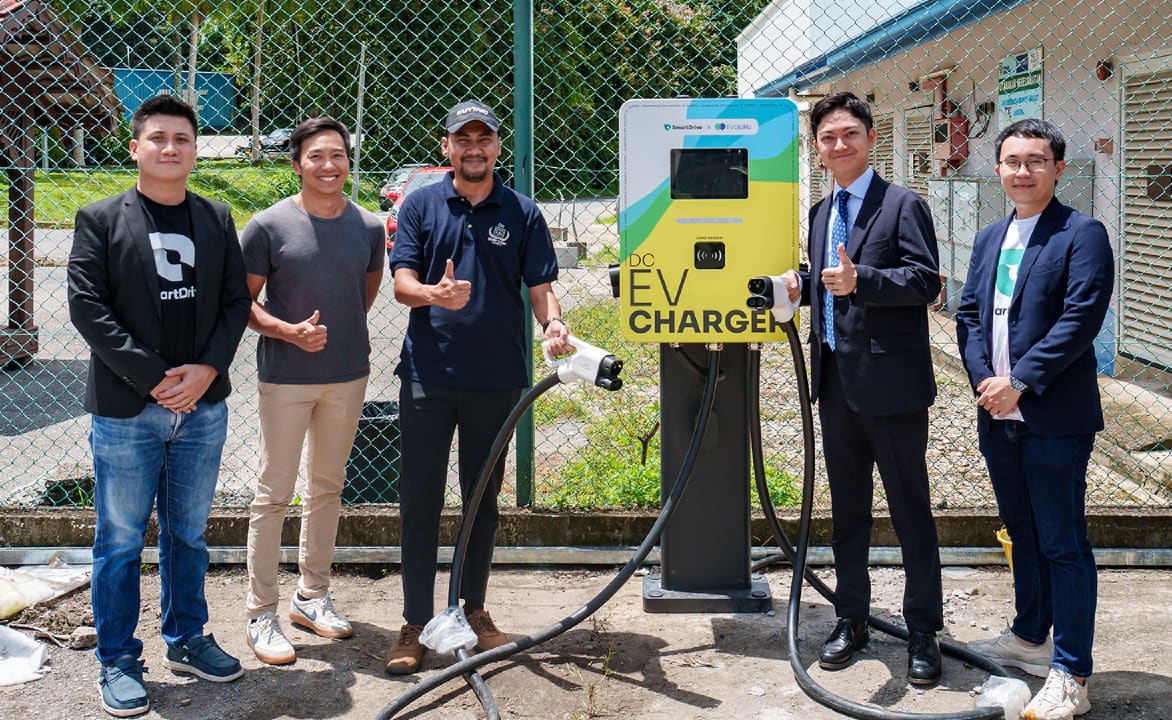
Kitagawa (second from right) poses beside newly installed SmartDrive charging station in Malaysia